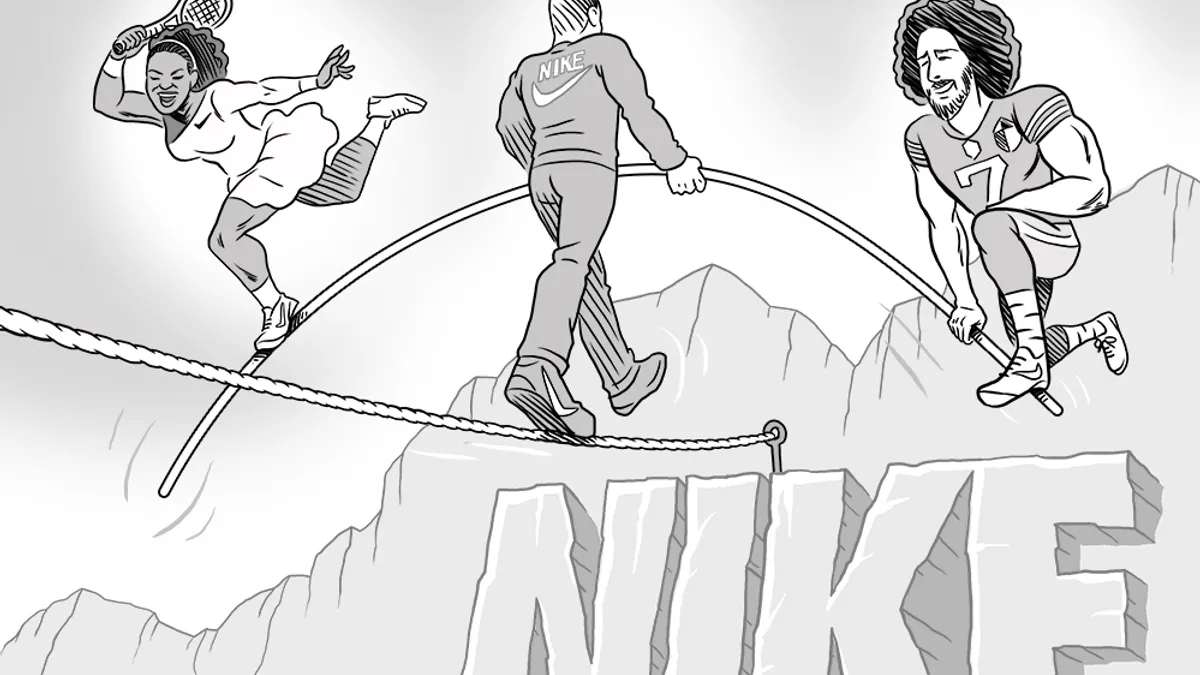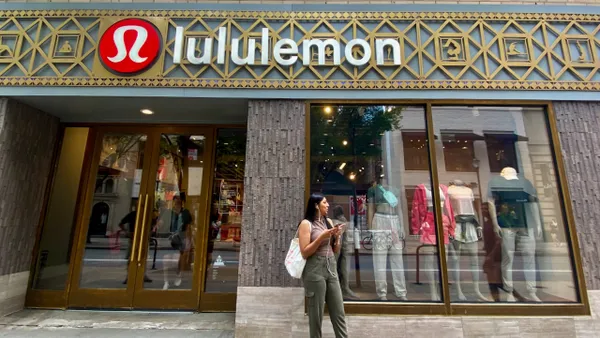Dive Brief:
- Despite the recent controversy over its withdrawal of a sneaker bearing a version of the American flag associated with Betsy Ross and timed for the Fourth of July, Nike's online sales did not suffer over the following ten days, according to new research from ecommerce intelligence firm Edison Trends shared with Marketing Dive.
- Sales remained about the same as before June 25, with June 29 marking a sales peak for the month. Online orders and customer spending didn't see much change either.
- Nike had decided on June 25 to cease distribution of its Air Max 1 Quick Strike Fourth of July sneaker because of request by brand ambassador Colin Kaepernick spurred by how the Betsy Ross-made flag image used on the shoe has been associated with the U.S. period of slavery, and because of the flag's current use by extremist groups.
Dive Insight:
Once again, Nike shows that its sometimes-controversial stands on social issues either has little impact on sales or actually boosts them. While some brands have been accused of "woke-washing" — running purpose-driven campaigns, but failing to take real action — Nike continues to remain unscathed with its politically minded efforts.
It appears that this kind of positioning — which often breaks through the clutter of advertising engulfing consumers — plays well with Nike's young, urban target audience. In fact, various studies, including one in early 2018 by social management platform Sprout Social, found that most consumers want brands to take a stand on big issues.
According to the Wall Street Journal, free agent NFL quarterback and social justice activist Colin Kaepernick objected to the use of the Betsy Ross flag design popularized during the American Revolution, because it was a period when the U.S. had slavery. The Journal also noted comments by the National Association for the Advancement of Colored People (NAACP) that the flag was being used by some extremist groups.
The Betsy Ross shoe had already been shipped to retailers, and Nike requested they be returned. In a statement, Nike only said that the shoe would not be released because it "featured an old version of the American flag."
In this controversy, as with Kaepernick's "Dream Crazy" commercial last September as part of its "Just Do It" campaign, Nike observers thought the brand would take sales and PR hits for its stands. But, according to Edison Trends, Nike's sales actually rose by nearly a third immediately after last fall's commercial aired. Following that campaign, Nike CEO Mark Parker touted a "record engagement with the brand."














